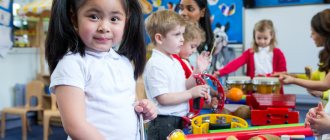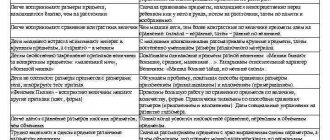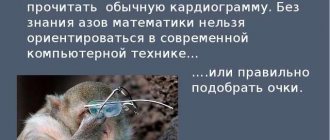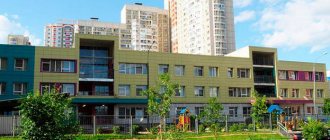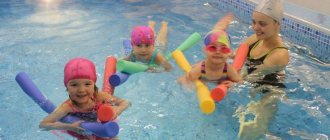Problem-based learning
This technique is based on a heuristic (problematic) approach. Students acquire skills and abilities in the process of independent activity, as a result of which their creative and cognitive abilities develop.
The use of advanced education in the modern educational system is permitted by the second generation Federal State Educational Standard. Children learn to solve problems in different ways, applying specific knowledge depending on the specifics of the current situation. With this approach, each child gets the opportunity to independently determine ways to solve problems.
Innovation as a means of developing Russian schools
What are educational technologies? The classification (table according to the Federal State Educational Standard) is practically no different from the classical system; it presents the same innovative methods used by teachers at different levels of schoolchildren’s education. The class-lesson system of classes involves teachers using certain programs in the subject, therefore the classification of pedagogical teaching technologies is carried out taking into account the individual characteristics of each specific academic discipline.
Nuances of traditional methods
Traditional technologies are based on explanatory and illustrative teaching. In the case of using such technology, the teacher in his work pays special attention to the transfer of ready-made educational material. When preparing for lessons, the teacher searches for the most effective ways of presenting new knowledge, the clarity that accompanies his story. The presentation of information, which is determined by the boundaries of the curriculum, mainly involves a monologue by the teacher. It is for this reason that numerous problems often arise in the educational process:
- insignificant independent activity skills of schoolchildren;
- low communication culture;
- lack of a detailed, complete answer from schoolchildren to the question under consideration;
- minimal attention from the audience, lack of desire to work in a team.
The reason lies not at all in the reluctance of children to work and study, but in the specifics of the pedagogical technology itself. The teacher is forced to tell the material provided by the curriculum, the child learns the information, and receives a grade for the answer. The teacher comes to the class with a ready-made task; his task is to subordinate the class to a certain regime and involve the children in educational activities. In this case, there is no talk of any individual personality development. In order for all students to learn the minimum amount of information, the material is repeated many times, and intermediate and final types of control are used.
Older teachers are accustomed to this method of work; they are convinced that only through “cramming” can a strong stock of knowledge, skills, and practical skills be passed on to the younger generation. The results of statistical studies indicate that 73% of the teaching staff are convinced that it is important to establish contact. Children note the need for independent activity; in their understanding, the teacher should become an assistant and mentor, and not a “supervisor.”
Pedagogy of cooperation
In order to implement a humane and personal approach to the student, modern schools create all the conditions for children to consciously choose the direction for their future professional activity.
Collective creative activities were especially popular during the existence of the traditional Soviet education system. Entire classes of children helped older people remove firewood and carry water. Currently, this technology is returning to educational institutions in the form of volunteer activities. Teachers, together with their students, try to selflessly help those people who need their help. MAE (active learning method) is the sum of pedagogical techniques and actions that are aimed at organizing educational activities. With the help of certain means, conditions are created that motivate children to proactively, independently and creatively study new material in the process of educational activities.
Technology Features
The methodological system must answer the following questions: “How to teach?”, “What to teach?”, “Why teach?”.
Educational technology involves effective learning. There are certain criteria according to which the essence of educational technologies is formulated:
- strict and unambiguous identification of the learning goal;
- selection of content, structuring of material;
- optimal organization of educational activities;
- techniques, methods, teaching aids.
In addition, the qualifications of the teacher must be taken into account and an objective methodology for assigning grades must be developed.
